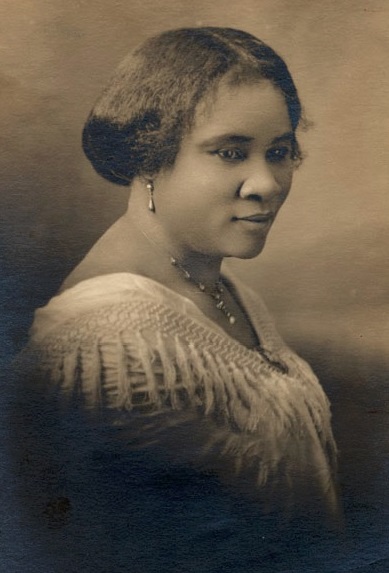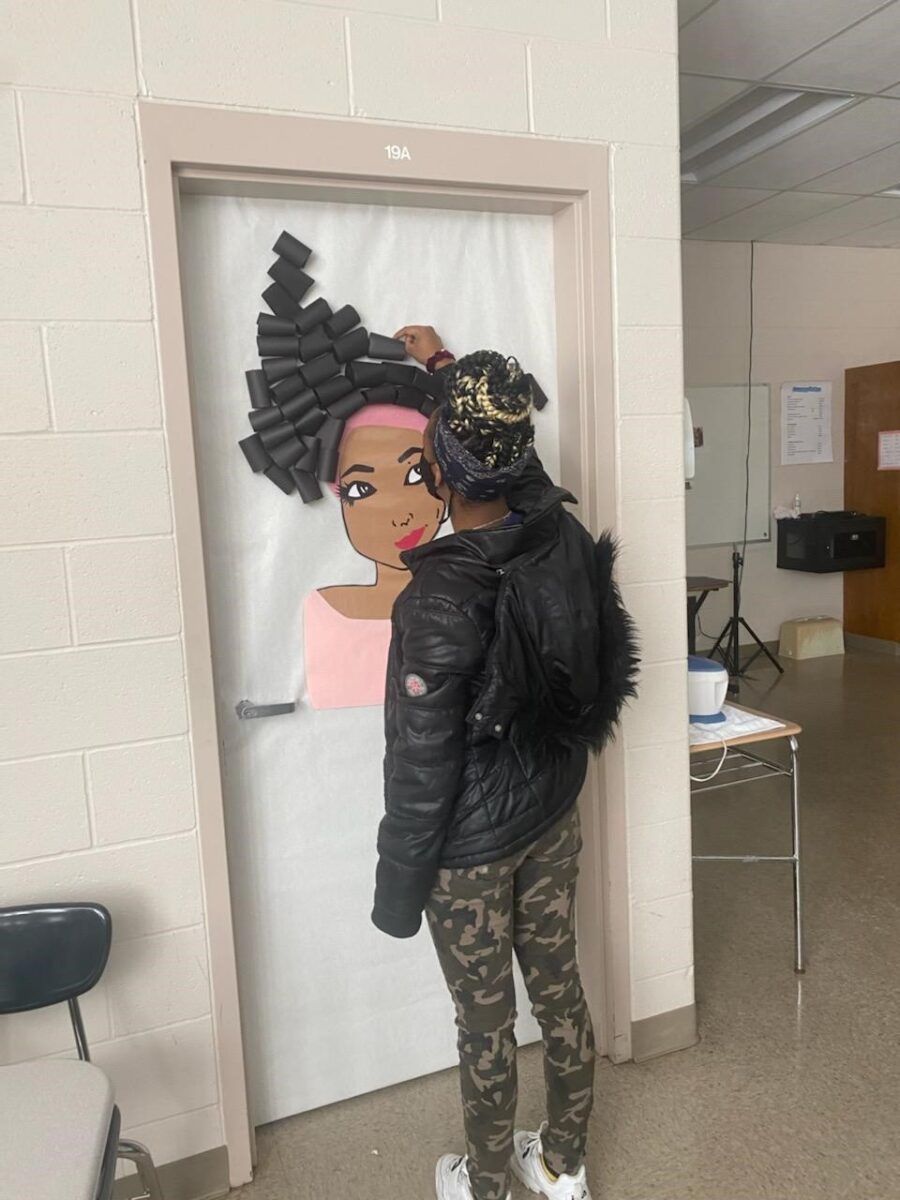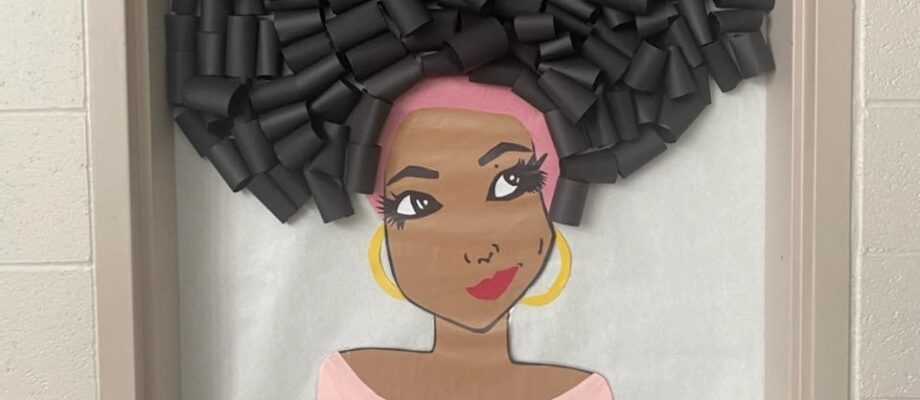This website uses cookies so that we can provide you with the best user experience possible. Cookie information is stored in your browser and performs functions such as recognising you when you return to our website and helping our team to understand which sections of the website you find most interesting and useful.
Culturally Responsive Education Helps Teacher Find Historical Inspiration, Representation for Students
“If you look good, you’ll feel good.”
That phrase is heard often in Mrs. Rebecca Jaszka’s classroom. She places a deliberate focus on creating a positive self-image in her students, in addition to teaching her cosmetology coursework on our Hamburg Campus.
This February, her barbering and cosmetology students have also been greeted each day by a beautiful, 3D artistic rendering of a young African American woman, created by Mrs. Jaszka and her students.
“At first, it was just me and one student working on it; but after a few minutes, all of the students got involved and were really having fun,” Mrs. Jaszka says of the project’s origin. “It gave them an organic and safe place to talk about cultural similarities and differences — and about how beautiful African American hair truly is.” One student suggested giving her hoop earrings, which led to ideas for other items that could be added throughout the year, like a decorative headband and other stylish enhancements.
Encouraged by a recent professional development session on the concept of Culturally Relevant Pedagogy, Mrs. Jaszka realized how ideal it would be to introduce her students to Madam C. J. Walker — America’s first female self-made millionaire — during Black History Month. Walker was an African American entrepreneur, philanthropist and activist in the early 1900s who made her fortune by creating a line of cosmetics and hair care products specifically designed for black women.
“I was inspired to educate my students about who she was,” Mrs. Jaszka explains. “Although she was born free (her parents were slaves), she started ‘from the bottom,’ washing clothes. She didn’t have the easiest life, but she overcame one obstacle after another, and never gave up.”

Randolph Academy prides itself on supporting, empowering, and educating students with mental and emotional disabilities, which often develop due to poverty, neglect, abuse, or personal loss. Our Career and Technical Education (CTE) classes, like cosmetology, provide students with options for rewarding, successful careers.
Mrs. Jaszka’s classroom lessons also embrace the components of culturally relevant pedagogy, by helping students relate the content to their own backgrounds and the cultural backgrounds of their classmates.
“I want to show my students what is possible for them — regardless of their background, race, or gender,” Mrs. Jaszka says. “Madam Walker began her journey by inventing a miracle hair-growth product — after her own hair was falling out, due to stress! She took that personal struggle and used it to inspire other black women, giving them a way of overcoming a personal challenge. She was trustworthy, authentic, and relatable. She created a better image for black women and their community. She helped them feel good about themselves, which gave them more confidence and opportunities.”
The students’ responses to Mrs. Jaszka’s lessons also illustrate that they were motivated and felt more included in the curriculum. “She’s so pretty and I enjoyed making her hair,” said one. “It makes me happy to learn about Madam Walker because it shows that black lives do matter!” added another.
If you’d like to learn more about how Randolph Academy can help add Culturally Relevant Pedagogy to your curriculum, or if you think you have a student who might benefit from a learning environment centered around Restorative Justice, you can connect with us, here.


